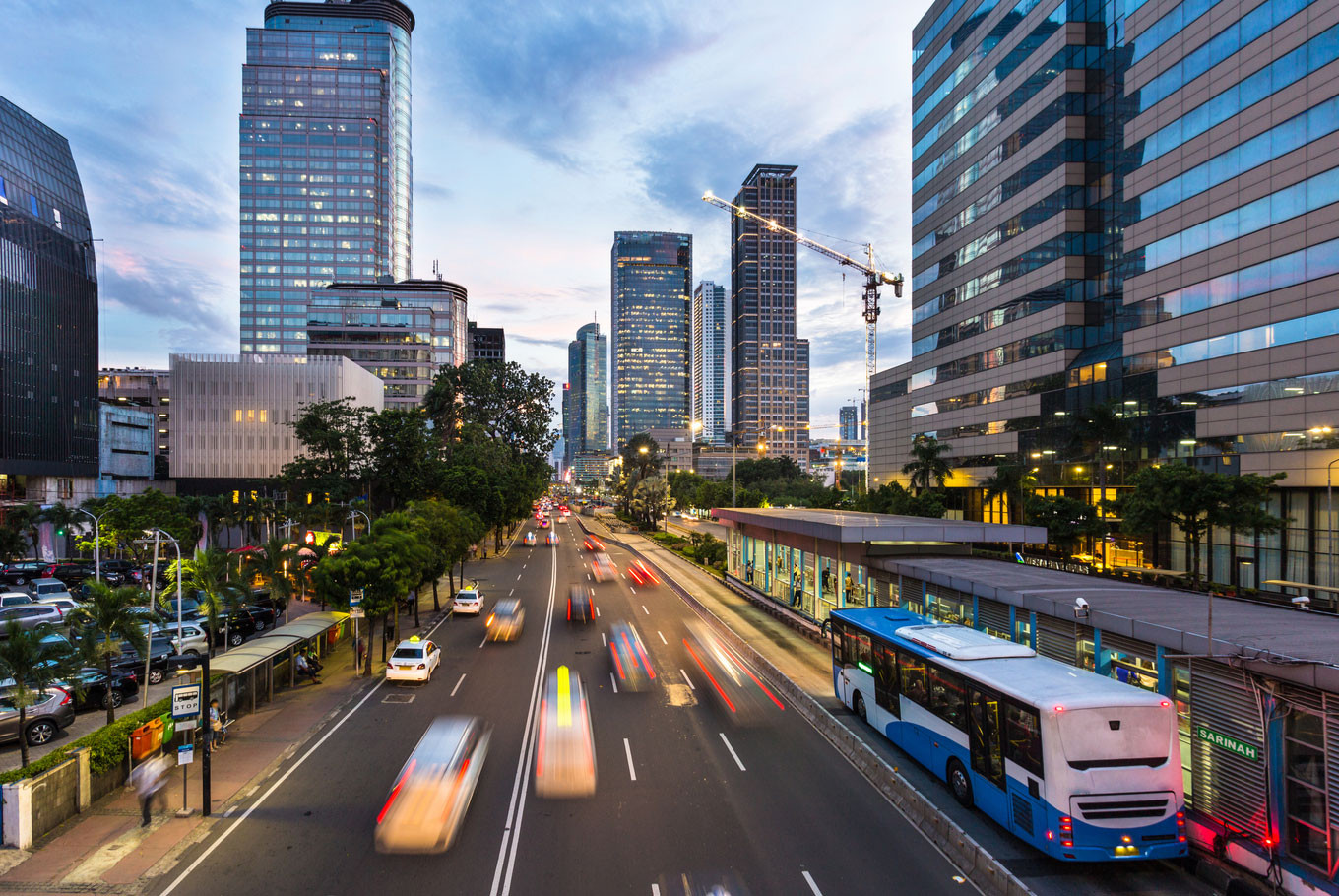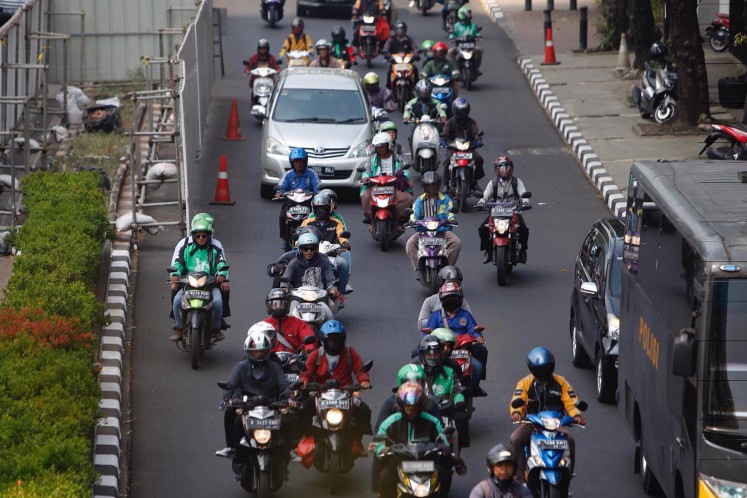Popular Reads
Top Results
Can't find what you're looking for?
View all search resultsPopular Reads
Top Results
Can't find what you're looking for?
View all search results5 Jakarta streets bearing the initials of national heroes
Here we look at five of the capital's major thoroughfares with initialled monikers, named after figures you may not be entirely familiar with.
Change text size
Gift Premium Articles
to Anyone
"What do the K and S stand for? I don't know," said Irwandi Roeslan, 27, an employee of a private firm on Jl. KS Tubun in Palmerah, West Jakarta. "I also have no idea who KS Tubun is. I presume he's a hero of independence, and that's why this street is named after him."
Irwandi, like his fellow Jakartans, often travels along roads named after national heroes, such as Jl. MH Thamrin, Jl. TB Simatupang and Jl. HR Rasuna Said. He is similarly far from alone in being largely ignorant of the people behind the initials.
Here we look at five of the capital's major thoroughfares with initialled monikers, named after figures you may not be entirely familiar with.
Jl. MH Thamrin, Central Jakarta
Jl. MH Thamrin is named after a colonial-era politician, Mohammad Husni Thamrin. Thamrin was born on Feb. 16, 1894, in Batavia (now Jakarta) to an Indonesian mother and a Dutch father. Raised in Batavia by his mother's Betawi relatives, he grew up immersed in Betawi culture and, as a young man, became a community leader.
Thamrin was elected to the Batavia City Council in 1923, soon establishing the Betawi Unity organization to empower native residents. In 1927, he became a member of the Volksraad legislature, where he established a nationalist faction. The faction was successful in convincing the colonial authorities to repeal the poenale sanctie, a regulation that gave carte blanche to plantation owners to punish laborers any way they saw fit.
Thamrin died of a chronic illness on Aug. 31, 1940, and was buried in Karet Bivak public cemetery.
Jl. KS Tubun, West Jakarta
Karel Satsuit Tubun, better known as KS Tubun, was immortalized in the name of a Palmerah street by the New Order regime for his role as a 'revolutionary hero'. Karel was a high-ranking police officer born Rumadian in Tual, Southeast Maluku, on Oct. 14, 1928. He joined the National Police in 1951.
In 1965, he was assigned to guard then deputy prime minister Johannes Leimena. Later that year, he died protecting Johannes from an attempted kidnapping during the purported attempted coup of Sept. 30, also known as the 30th September Movement, in which seven army generals were killed.
Karel is buried in Kalibata Heroes Cemetery in South Jakarta.
Jl. HR Rasuna Said, South Jakarta
Motorcyclists travel along Jl. Rasuna Said in South Jakarta on Aug. 21, 2017. (JP/Wendra Ajistyatama)Hajjah Rangkayo Rasuna Said is the name of a well-known Minangkabau matriarch and politician. She was born on Sept. 14, 1910, in Maninjau, Agam regency, West Sumatra.
In her lifetime, Rasuna was active in many organizations, including the Sarekat Rakyat (People's Union) and Indonesian Muslim Organization, as well as on councils including the Sumatra Representative Council and the Indonesian National Advisory Council.
Like other female leaders, Rasuna also fought for equality between men and women in Indonesia.
President Soeharto named her a national hero in 1974. Rasuna died on Nov. 2, 1965, and was buried in the Kalibata Heroes Cemetery.
Jl. TB Simatupang, South Jakarta
Jl. TB Simatupang is named after soldier Tahi Bonar Simatupang. Tahi was born on Jan. 28, 1920, in Dairi, North Sumatra, and died in Jakarta on Jan. 1, 1990.
During his life, Tahi served in the Indonesian National Revolution and gained an officer's position in the Indonesian Armed Forces.
He served as adviser to the Defense Ministry, then became a lecturer at the Army Staff College and the Military Legal Academy. He resigned from the military in 1959 and spent the rest of life immersed in religious contemplation and writing.
He was declared a national hero along with Radjiman Wedyodiningrat and Lambertus Nicodemus Palar.
Jl. MT Haryono, South Jakarta
Lt. Gen. Mas Tirtodarmo Haryono was one of the officials killed in the purported attempted coup of Sept 30, 1965. Haryono, born in Surabaya, East Java, on Jan. 20, 1924, was a general officer in the Indonesian Army.
Haryono was able to speak Dutch, English and German and led the communications office in Jakarta in 1945. Four years later, he had an important position at the Dutch-Indonesian Round Table Conference, at which the Dutch officially transferred sovereignty to Indonesia.
This article was originally published in The Jakarta Post's print edition on Jan. 15, 2016, with the title "Weekly 5: Jakarta streets bearing the initials of national heroes".











